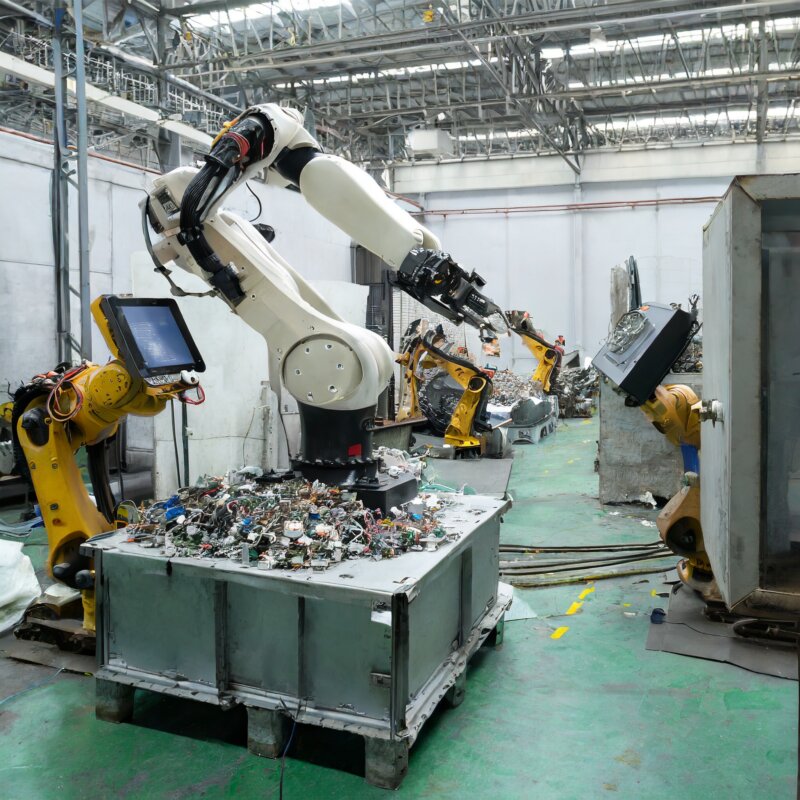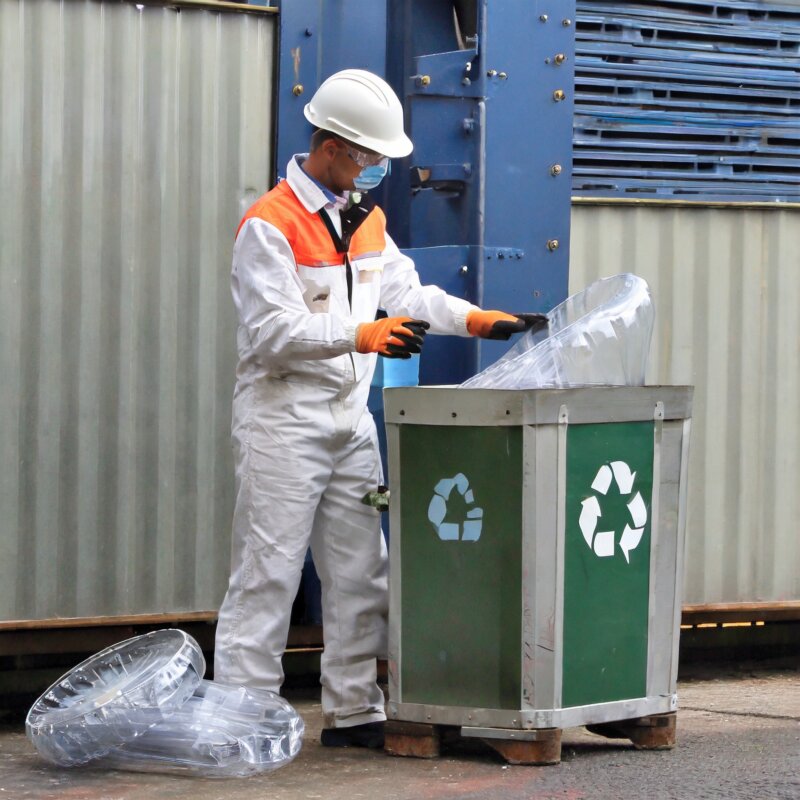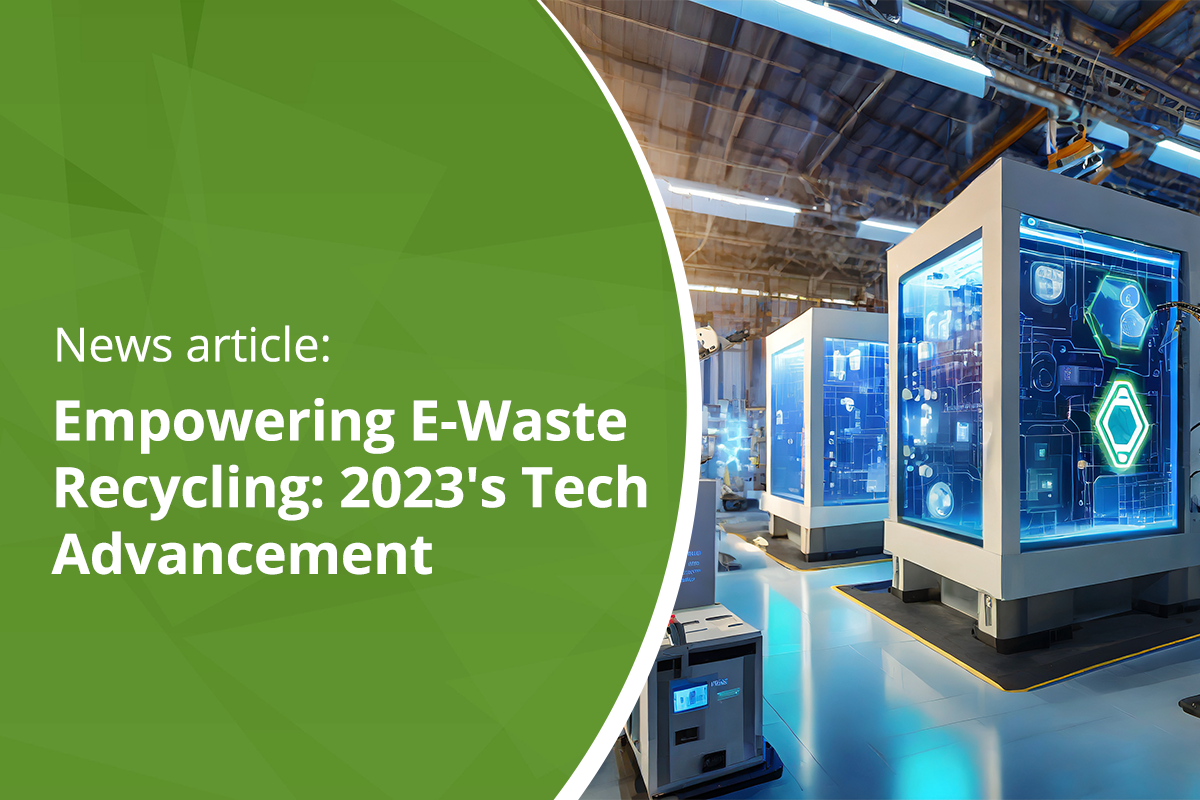Table of Contents
E-Waste Recycling
As our digital world continues to evolve at breakneck speed, the challenges of electronic waste (e-waste) and the pressing need for sustainable recycling solutions have never been more evident. In response, 2023 brings a wave of innovative technologies that promise to revolutionise the e-waste recycling landscape, providing hope for a cleaner, more sustainable future.
Artificial Intelligence (AI) and Machine Learning (ML)
Artificial intelligence and machine learning are rapidly transforming the way we approach electronic waste recycling.
These technologies offer the potential to make recycling processes more efficient and environmentally friendly.
AI-powered systems can now also identify different materials within e-waste, from metals to plastics and glass.
This capability enhances the sorting and recovery of valuable resources, reducing the amount of e-waste ending up in landfills.
Furthermore, in a world where technology is continually advancing, it is only fitting that AI and ML take the lead in addressing the e-waste crisis.
Robotics
The integration of robotics into electronic waste recycling processes is another exciting development.
Automation offers the potential to revolutionise the industry by streamlining tasks such as sorting, dismantling, and shredding.
Not only does this increase efficiency, but it also enhances safety for workers, particularly when dealing with hazardous materials.
The future of electronic waste recycling looks brighter with these mechanical marvels leading the charge.

Internet of Things (IoT)
The Internet of Things (IoT) is playing a pivotal role in creating a more transparent and accountable e-waste recycling industry.
IoT sensors are being deployed to track the movement of e-waste throughout the recycling process.
This real-time monitoring enhances visibility, ensuring that e-waste is handled with the utmost responsibility and care.
Furthermore, it’s a technological advancement that aligns perfectly with the demand for responsible e-waste management.
Blockchain
Blockchain technology, renowned for its secure and transparent ledger system, is making its mark on electronic waste recycling.
By creating an immutable record of the recycling process, blockchain ensures that e-waste is processed in a responsible and environmentally friendly manner.
The technology is set to provide a level of trust and also accountability that the electronic waste recycling industry has long needed.
E-Waste Recycling Info
Beyond these overarching technologies, there are specialised innovations aimed at improving the recycling of specific components of electronic waste.
For instance, companies are developing new methods for recycling lithium-ion batteries, a significant component of electronic devices.
Meanwhile, other firms are pioneering ways to recycle rare earth metals, which are crucial for various electronic components.

The significance of these emerging technologies cannot be overstated.
As the world’s production of e-waste continues to surge, finding efficient, effective, and also sustainable recycling solutions has become an imperative.
Also, in 2021, the world generated an estimated 57.4 million metric tonnes of e-waste, signifying the urgency of responsible recycling and resource recovery.


